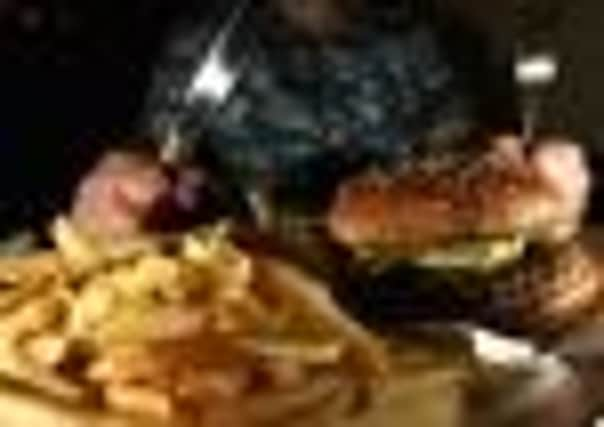Anti-junk food lobby to target 2014 Commonwealth Games


The influential groups behind the Children’s Food Campaign have claimed firms selling burgers, fizzy drinks or chocolates should not be allowed to promote their products at the 2014 Games while Scotland is in the grip of an obesity epidemic.
Their call follows criticism of the organisers of London’s Olympics after sponsors, including McDonald’s, Coca-Cola and Cadbury, monopolised food branding in the Olympic park and athletes’ village.
Advertisement
Hide AdAdvertisement
Hide AdSuch sponsorship contributed £612 million in revenue to the London Olympiad.
But the Children’s Food Campaign, which is backed by dozens of organisations including the British Medical Association, Children’s Society, Barnardos, the British Dental Association, Consumer Focus and Save the Children, plans to mount a two-year campaign to persuade Glasgow 2014 organisers to pursue “healthier” sponsorship deals instead.
Last night Malcolm Clark, the campaign’s co-ordinator, said: “We are calling for a junk food ban at Glasgow 2014 in advertising and sponsorship. This is a real opportunity to make a mark, and go over and above what the London Olympics did.
“It’s all about making healthy choices easier for parents and children. Scotland has a particularly vulnerable population where obesity and dental problems are high. Special measures are needed. We believe Glasgow can learn from the Olympics, because we feel its legacy has been downplayed in terms of healthy eating. Our members will be pushing [the 2014 organisers] to choose other companies which don’t make junk food. And if they do, we will report it.”
The most recent statistics from the Scottish Health Survey suggest 27 per cent of people aged 16 to 64 were obese in 2010. One in five children in Scotland are overweight, with one in 12 classed as obese. Health professionals blame a high-fat diet and lack of exercise.
The London 2012 Games provided a worldwide platform for McDonald’s, Coca-Cola and Cadbury.
McDonald’s, which has sponsored the Olympics for 36 years and is signed up for another eight, had four restaurants in London’s Olympic Park, one of which can seat 1,500 customers.
Coca-Cola has sponsored the Olympics since 1928 and is signed up until 2020. It fronted the Olympic torch relay and was London’s official soft drinks provider. Cadbury was the official “treat” provider, held major ticket promotions and created special themed chocolate bars.
Advertisement
Hide AdAdvertisement
Hide AdGlasgow 2014, which is not bound by such long-term deals, has named sponsors including computer firm Dell, law firm Harper Macleod, accountants Ernst and Young, IT specialists Atos and recruitment agency Search Consultancy. No food or drinks firms have so far been selected. A Glasgow 2014 source said organisers had not yet imposed any restrictions. The source added: “We are having a range of conversations with a wide range of companies. Nothing is ruled in or out.”
A spokesman for Coca-Cola declined to comment. McDonald’s and Cadbury did not return calls.